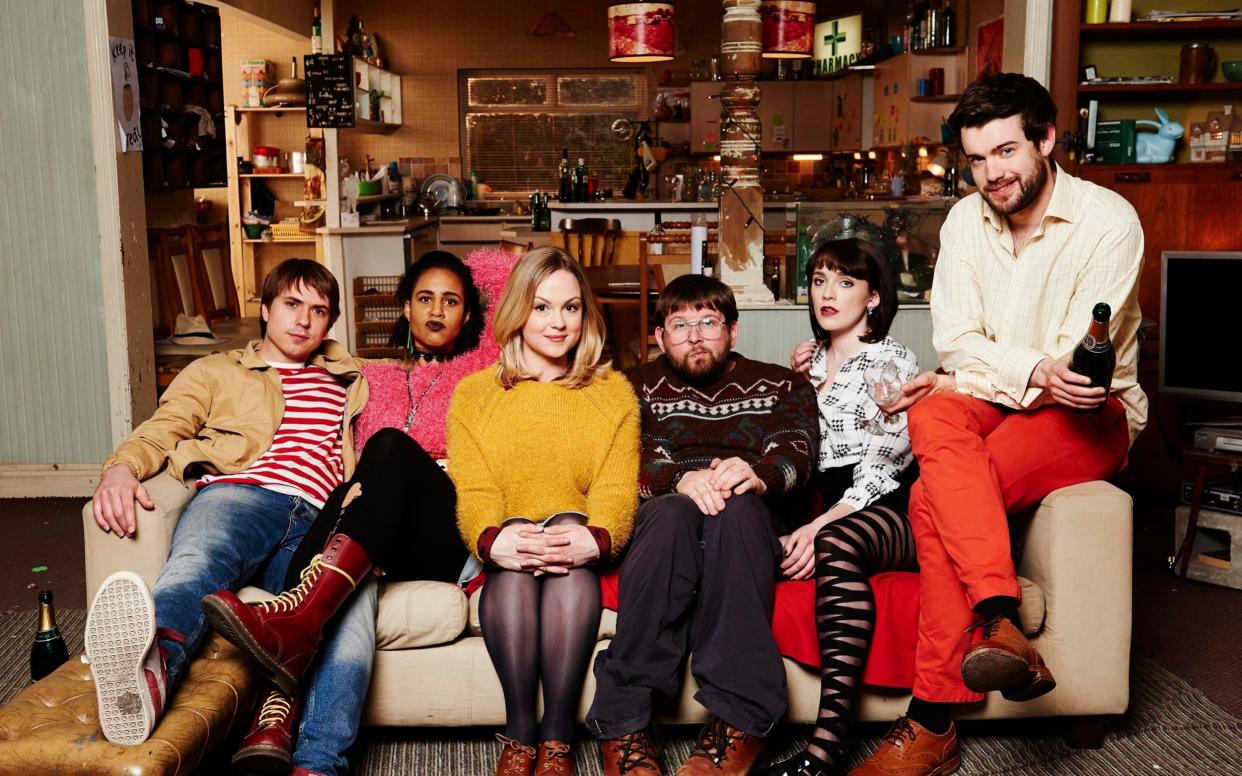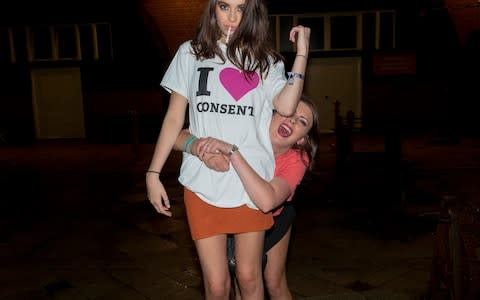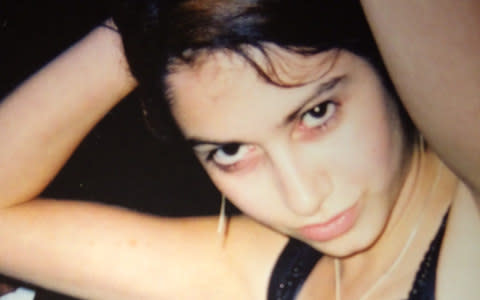Freshers' week 2017: how today's young people have changed the rules of having fun

Night one of Freshers’ Week 2017 at King’s College London and I’m waiting at a student union bar for the welcome party to kick off. The room is adorned with balloons, while screens flash up offers of cheap drink deals. I could be back at my own freshers’ week in 2001, except that a blackboard by the bar is advertising celeriac and apple soup, an unlikely student choice back then.
This week, thousands will descend on universities for the first batch of freshers’ weeks. Traditionally, this has been a time to cut loose from the shackles of school and the family home and assert one’s independence by mostly getting wasted. Binge-drinking has been endemic in student culture for decades, despite endless health warnings and much hand-wringing by the grown-ups.
Yet recently we’ve been alerted to a new problem with our youth: they appear to be reining it in.

Figures from the Office for National Statistics two years ago revealed the number of under-25s opting for total abstinence from alcohol had leapt by 40 per cent in eight years, with young people overtaking the elderly as the most sober generation. Meanwhile, these children of Tinder are turning their backs on promiscuity, too, with research last year finding those in their early 20s were almost three times as likely as their parents’ generation not to be sexually active.
We’ve given them a sneery nickname, these delicate young folk with their “safe spaces” and hypersensitivity to views contradicting their own; these perplexing clean-eaters who’d favour a spinning class over a rave: we call them “snowflakes”. And each week brings us fresh tales of their softness.
This week we learned many freshers are being furnished with infantilising safety wristbands bearing their address and emergency contact details. Cue a collective eye-roll from the rest of us. Last week came news that Cambridge University was appointing a sexual assault and harassment adviser to “bolster the advice and support available to a student”.

Some developments, such as sexual consent workshops, which were made compulsory for freshers at Oxford University last year, may appear positive, but they’ve also been seized on as evidence we have wrapped young adults in cotton wool, leaving them ill-prepared to face the real world.
Kelly Norman, a 22-year-old English Language and Linguistics finalist from Swindon, is working behind the bar at the King’s freshers’ party. She says it’s not uncommon to have someone in your friendship group at university who doesn’t drink much. “Sometimes it’s for religious reasons and sometimes they’re just not into the drinking culture. Some people go to clubs and just have soft drinks. They still enjoy it,” she says.
She herself drinks, and says she still sees student windowsills decorated with empty vodka bottles. But attitudes are clearly shifting.
On the other side of the Thames, near London Bridge, a trickle of freshers files into another King’s party. Saskia Gaiger, an 18-year-old Classicist from South Wales, doesn’t think drinking is “necessarily at the centre of freshers’ week” any more. Being sensible, she suggests, is “the new vice” of her peers.

“People exercise more and are more into being healthy,” she says. “It’s a bit sad. There’s so much emphasis on the idea that we need to get jobs so people probably think of studying as a bigger thing than it used to be.”
What about drugs? Did anyone at her school take any? “Not really. People didn’t find them that interesting,” she shrugs.
Tom, 18, from Chelmsford, Essex, who has come to King’s to study dentistry, says: “We don’t [go drinking] as much, but when we do, we do go for it.”
So when term starts, how often does he expect to get drunk? “Probably once every two or three weeks.”
To me this sounds abstemious. As a teenager in the 1990s, everyone I knew was binge-drinking weekly by 14. Friday nights, the local park was dotted with inebriated kids, and almost everyone by this age had drunk themselves sick; to do so was a badge of honour. Most of us were “social smokers” by 15, and weed was not hard to come by either. By 16, those of us who looked old enough had started clubbing.

We watched our heroes - Kurt Cobain, Damon Albarn, Liam Gallagher - self-destruct with booze and drugs, and it didn’t seem tragic but aspirational. To drink to excess, and to smoke, was to fit in; to belong.
That was before the 2007 smoking ban; before the raising of the legal purchase age for cigarettes to 18 and the hike in their price; before the prospect of sky-high tuition fees checked our spending; before the financial crisis of 2007-08 killed the party. And - crucially - before social media. We didn’t have to worry our antics would be immortalised online, haunting us well into our professional lives. Today, this threat hangs over every young drinker.
“If you’ve had a night out and got really drunk and there are photos to prove it, it’s a maturing experience,” reflects Tom Platts, 18, a Classicist from Wakefield, West Yorkshire.
Social media, moreover, removes us from the moment, casting us as observers and documenters of our own lives.

“Snapchat!” agrees Kelly. “We’re constantly posting pictures of our nights out or creating video diaries of what we’re doing so we can look back on it. Last year, we’d have dinners at our flat and everyone was just photographing the food for the first 10 minutes – no one was actually eating it. We’re not really looking at events now, we’re looking at them through lenses. We get a bit caught up in feeling the need to document things and not actually living it.”
Research by Heineken last year found 75 per cent of millennials said they limited their alcohol consumption on most of their nights out; self-awareness and staying in control were found to be the motivating factors.
Permanently watching a curated version of yourself refracted back at you through social media’s distorting prism could indeed be answerable for a change in behaviour. Living life with reckless abandon is hardly compatible with the new, calculated style of life-as-performance.
But as I walk past the gender-neutral toilets at the King’s student union, I’m reminded how non-drinkers were once regarded with suspicion on campus and were definitely not cool. Now, it seems, truly anything goes.


